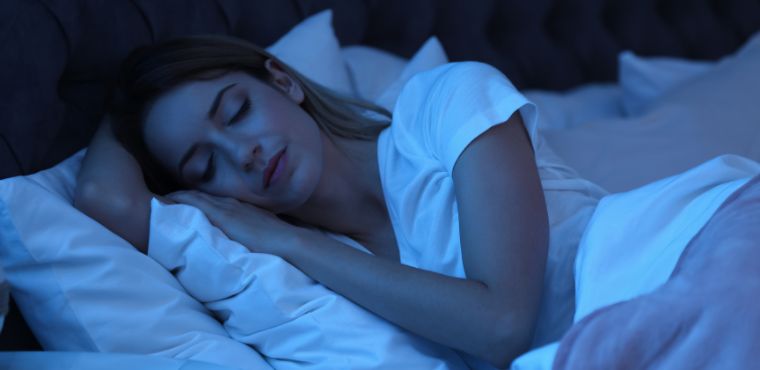The way you sleep affects how you feel every day. If you can’t get a good night’s sleep, you can’t set yourself up for success the next day. Unfortunately, achieving quality sleep isn’t always easy. But there are a few things you can do to help your body and mind relax so that you can fall asleep easier and wake up feeling well-rested. Achieve better physical and mental health with these tips for improving your quality of sleep every night.
Create a Consistent Routine
Consistency is key to a good night’s sleep. Going to bed and waking up at drastically different times throughout the week can disrupt your body’s circadian rhythm and lead to poorer sleep quality.
Do your best to find a routine that works for you and stick with it. Establish a consistent bedtime and set your alarm so that you wake up at around the same time every morning. Do this even on weekends or days when you don’t have any plans in the morning. Consistency builds a habit and trains your body into a healthier sleep routine, which will make it easier to fall asleep and wake up on time.
Look for Underlying Issues
Sometimes, it’s hard to fall asleep no matter what kind of bedtime routine you have. If you struggle to fall asleep quickly, stay asleep at night, or sleep until the morning, there might be an underlying issue that’s causing insomnia. Insomnia is a sleep disorder that can stem from a wide variety of issues, including daytime habits, stress, life changes, or mental health disorders. Understanding where insomnia comes from and how it’s affecting your sleep can help you address the issue and improve your sleeping habits.
Pay Attention to Light Exposure
Light exposure affects your circadian rhythm and the way your body keeps time. Sunlight tells your body that it’s time to be awake, while darkness tells your body it’s nighttime. Artificial lighting can throw a wrench in your body’s timekeeping, though. If you don’t get enough bright light exposure during the day, you might not feel tired when it’s time to go to bed. Similarly, if you experience too much blue light exposure in the evening, you can trick your body into thinking it’s still daytime.
Paying attention to light exposure throughout the day is one of the most important tips for improving your quality of sleep at night. Seek out bright light exposure during the day through natural sunlight or artificial bright light. At night, reduce blue light exposure by limiting the time you spend looking at electronic screens, such as your phone or laptop. These habits will support your circadian rhythm and help you follow a natural, healthy sleep pattern.








